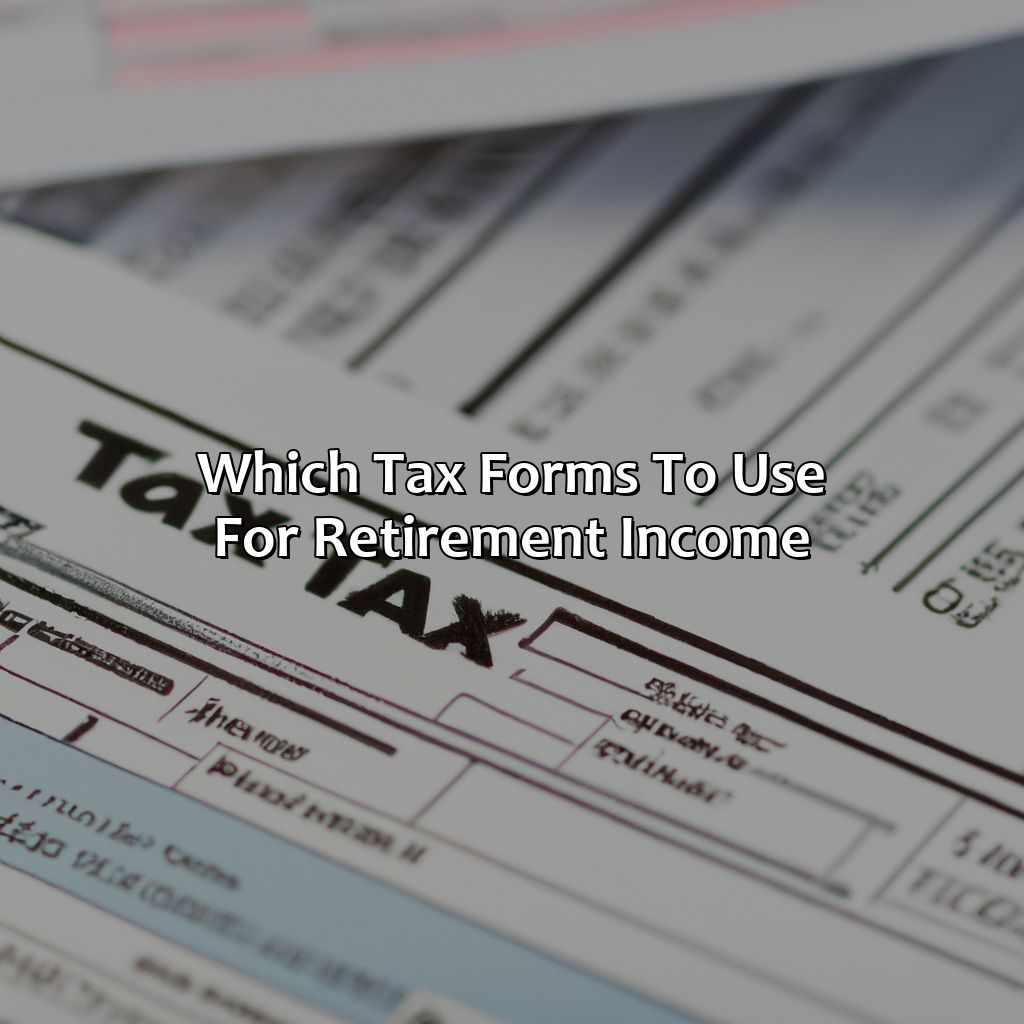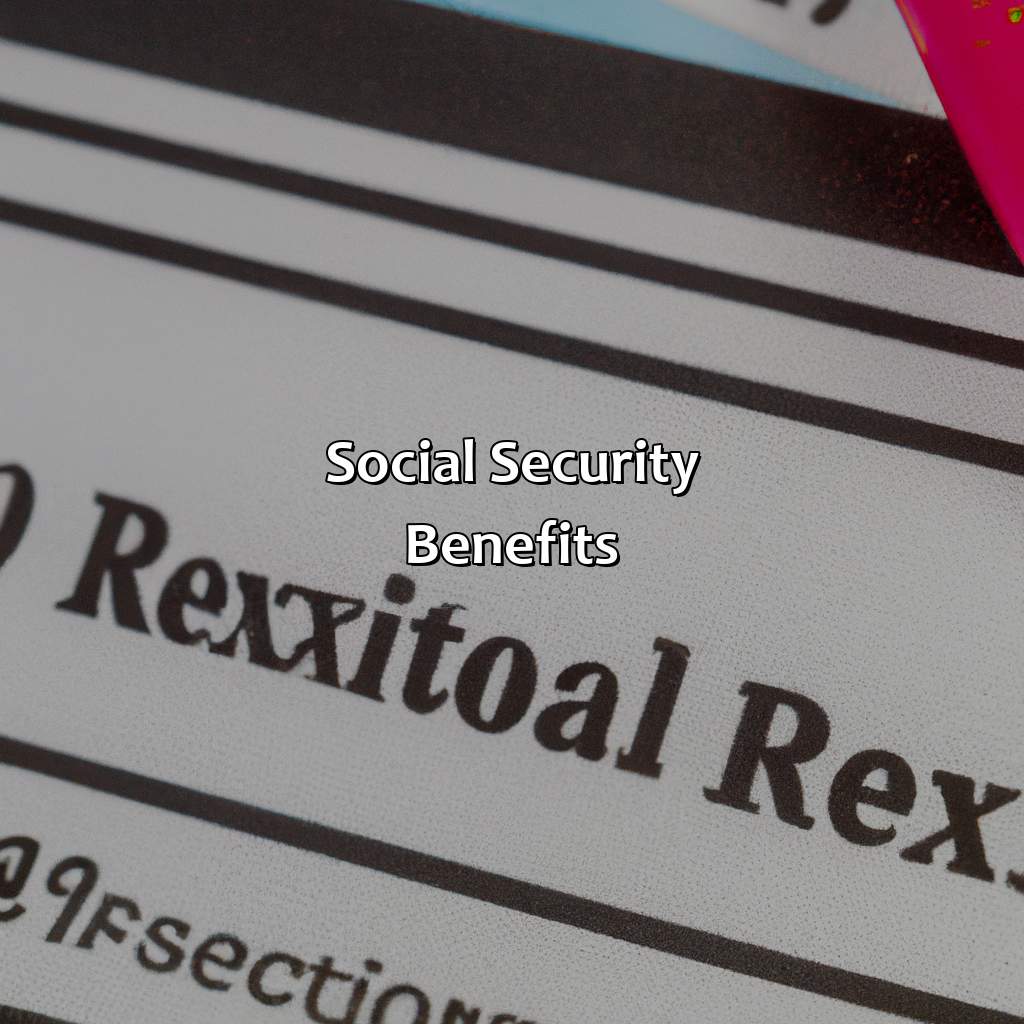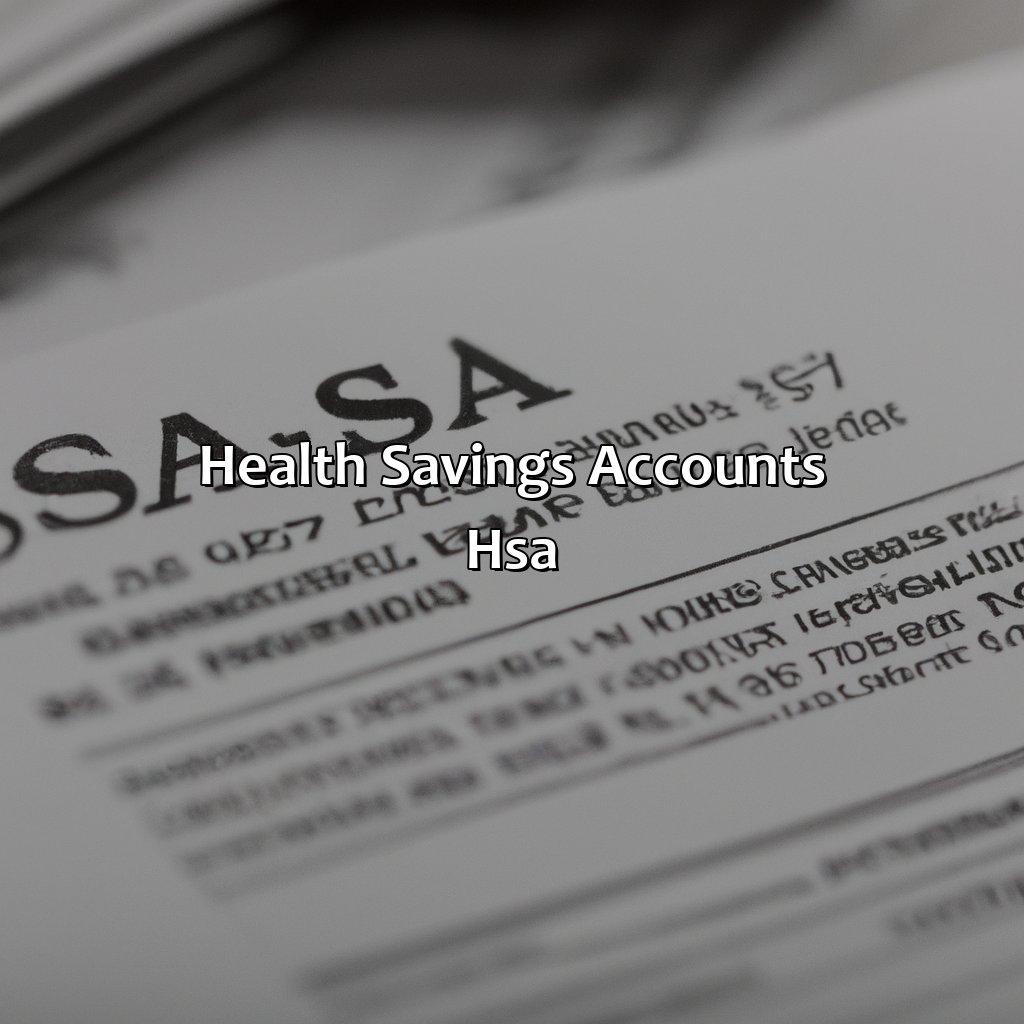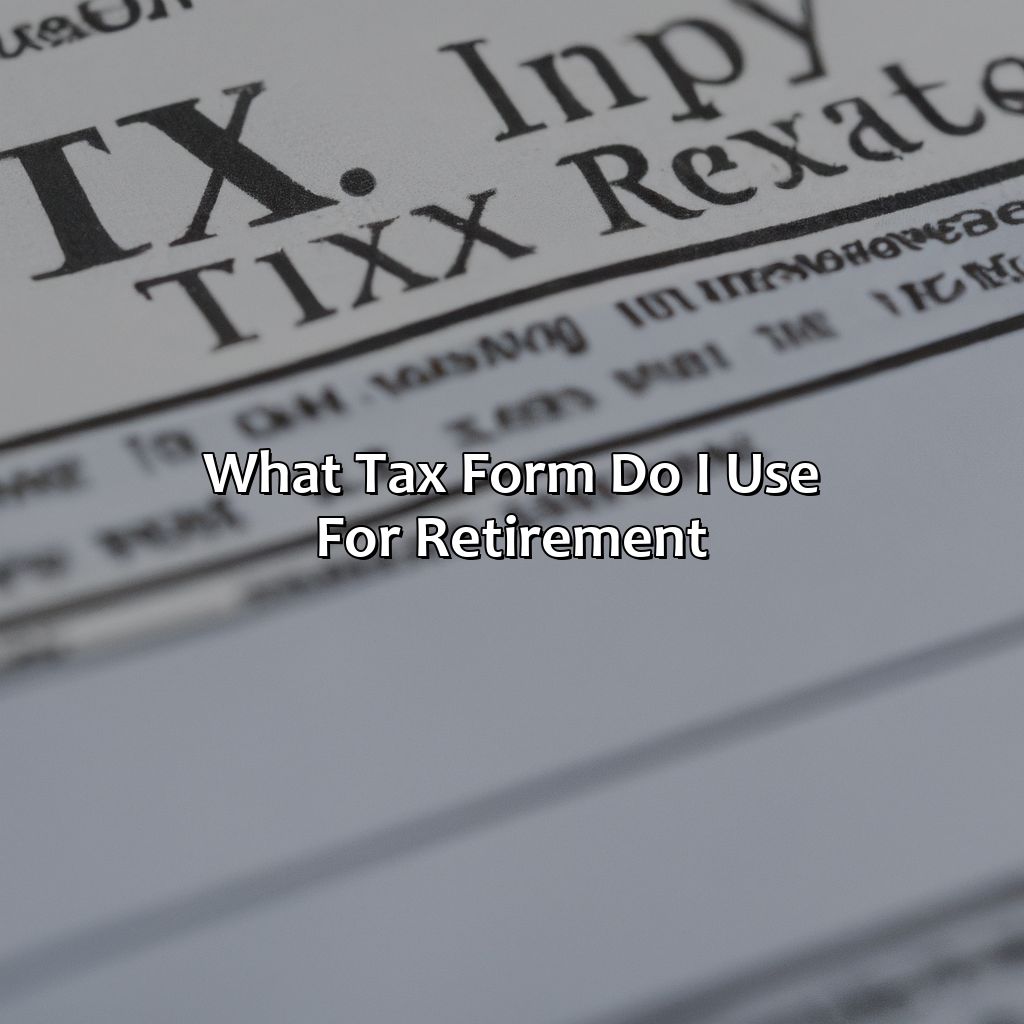What Tax Form Do I Use For Retirement?
Key Takeaway:
- Form 1099-R should be used for reporting distributions from your retirement accounts, whether they are from a traditional IRA or a 401(k) plan.
- Form 5498 should be used for reporting contributions made to your retirement accounts, whether they are made by you or your employer.
- Form SSA-1099 should be used for reporting Social Security benefits received during the tax year.
- Form 1099-SA should be used for reporting distributions from your Health Savings Account (HSA).
Filing taxes can be a daunting task, especially when it comes to your retirement. With so many options to choose from, you may be unsure of which form to use. This article will help you navigate the tax forms associated with retirement so you can file with confidence.
Which Tax Forms to Use for Retirement Income
In order to properly file taxes for retirement, it is important to understand the appropriate tax forms to use. Here is a breakdown of some commonly used tax forms for retirement income:
| Tax Form | Description |
|---|---|
| 1099-R | This form reports distributions from retirement accounts, including pensions, annuities, and IRAs. |
| 1040 | This is the standard individual tax return form, and is used to report all types of income, including retirement income. |
| 8606 | This form is used to report nondeductible contributions to traditional IRAs, which can affect the tax treatment of future distributions. |
| 5498 | This form reports contributions made to IRA accounts during the tax year. |
It is important to note that not all retirement income is taxable, and some retirement accounts may have different tax implications. Additionally, state tax forms may need to be filed in addition to federal tax forms.
To ensure all necessary forms are filed correctly and on time, consult with a tax professional or use online tax filing software that is tailored to retirement income.
Don’t risk missing out on potential tax deductions or making costly mistakes. Stay informed and file your retirement income tax forms accurately and timely. Your financial future depends on it.

Image credits: retiregenz.com by Joel Arnold
Social Security Benefits
Social Security Benefits are an essential part of retirement. These benefits are designed to provide financial support for eligible individuals who have contributed to the Social Security system during their career. The benefits are based on a person’s average lifetime earnings and are computed using a formula. For those who are eligible, Social Security Benefits can provide a steady income during retirement that can help supplement their retirement savings.
It is essential to understand the eligibility criteria and the process of claiming Social Security Benefits. Individuals can claim their benefits as early as age 62, but the longer they wait, the more they will receive each month. Additionally, certain life events, such as marriage, divorce, or the death of a spouse, can have an impact on Social Security benefits. Therefore, it is essential to research and plan ahead to take full advantage of these benefits.
Did you know that Social Security Benefits were first introduced in the United States in 1935 as part of President Franklin D. Roosevelt’s New Deal? The initial goal was to provide benefits to retirees, but over time, the program has expanded to include survivors, the disabled, and dependents. Today, Social Security Benefits play a vital role in retirement planning for many Americans.

Image credits: retiregenz.com by Harry Washington
Health Savings Accounts (HSA)
Contributing to your future health expenses can be made easier with Retiree Health Accounts (RHA), a type of tax-advantaged savings account specifically designed for retirees.
RHAs allow individuals to make pre-tax contributions, which are then invested and grow tax-free until needed for deductible medical expenses in retirement. These accounts offer flexibility and control, as retirees can decide how much to contribute and when to withdraw funds.
RHAs can only be used once an individual is retired and enrolled in Medicare or another qualified health plan. Additionally, there are annual contribution limits and eligibility requirements, so it is important to consult with a financial advisor or tax professional before opening an RHA.
With rising healthcare costs and uncertainty about the future of Medicare, planning for retirement health expenses is crucial. By considering options like RHAs, individuals can prepare for the expected and unexpected costs that come with aging.

Image credits: retiregenz.com by James Duncun
##Example Response:
Five Facts About What Tax Form To Use For Retirement:
- ✅ If you have a traditional IRA, you will need to file Form 1040 when you take distributions. (Source: TurboTax)
- ✅ If you have a Roth IRA and are taking qualified distributions, you will not need to report them on your tax return. (Source: IRS)
- ✅ If you contributed to a 401(k) plan, you will receive Form 1099-R from your plan administrator to report the distributions on your tax return. (Source: Charles Schwab)
- ✅ If you rolled over funds from a 401(k) to an IRA, you will receive Form 1099-R to report the distribution on your tax return. (Source: H&R Block)
- ✅ If you are over 70 ½ and have traditional IRAs or certain types of retirement plans, you must take required minimum distributions, and these distributions will be reported on Form 1099-R. (Source: AARP)
FAQs about What Tax Form Do I Use For Retirement?
What tax form do I use for retirement?
As you begin to prepare your tax returns, it is important to understand which form is appropriate when reporting your income from retirement.
Which tax form do I use if I receive Social Security benefits?
If you are receiving Social Security benefits, you will need to use Form 1040 or Form 1040-SR to report your income. If Social Security is your only source of income, you may not have to file a tax return at all.
Do I need to report income from my retirement accounts?
Yes, any income received from retirement accounts, such as a 401(k), IRA, or pension plan, must be reported on your tax return. You will use either Form 1040 or Form 1040-SR to report this income.
What tax form do I use if I have multiple retirement accounts?
If you have multiple retirement accounts, you will still use Form 1040 or Form 1040-SR to report the income from each account. You will need to individually report the distribution amounts from each account, as well as any taxes withheld.
How do I report income from a Roth IRA?
If you took a withdrawal from your Roth IRA, you will need to report the amount of distribution on line 4a of Form 1040 or Form 1040-SR. If you have held the account for at least five years and meet the age requirement, the withdrawal may be tax-free.
What tax form do I use if I receive a 1099-R?
If you receive a 1099-R form, which reports distributions from a retirement account, you will need to use Form 1040 or Form 1040-SR to report the income. You will need to report the total distribution and any taxes withheld.






